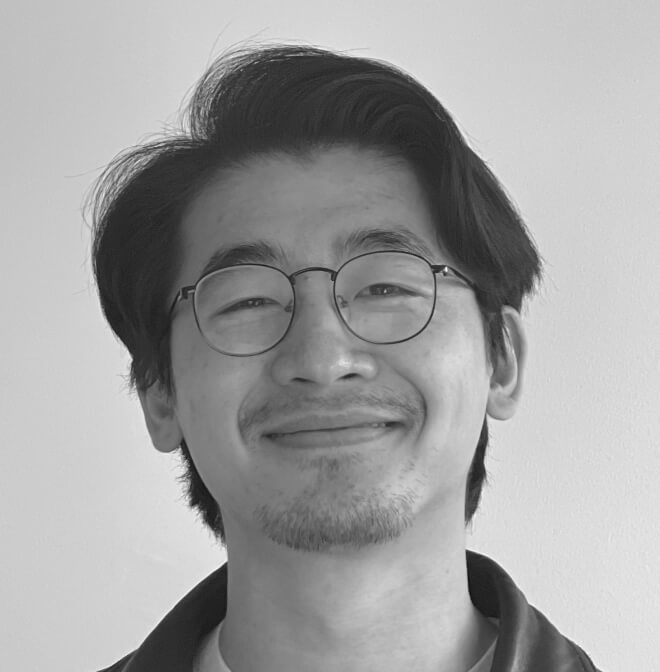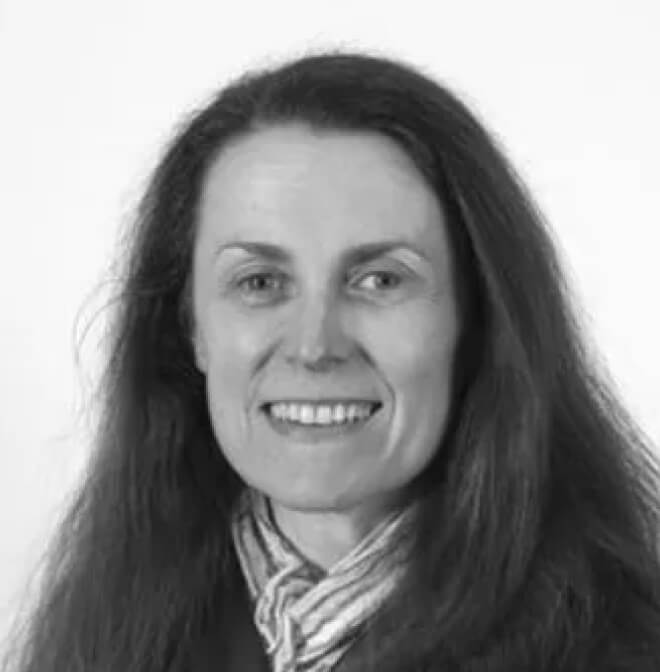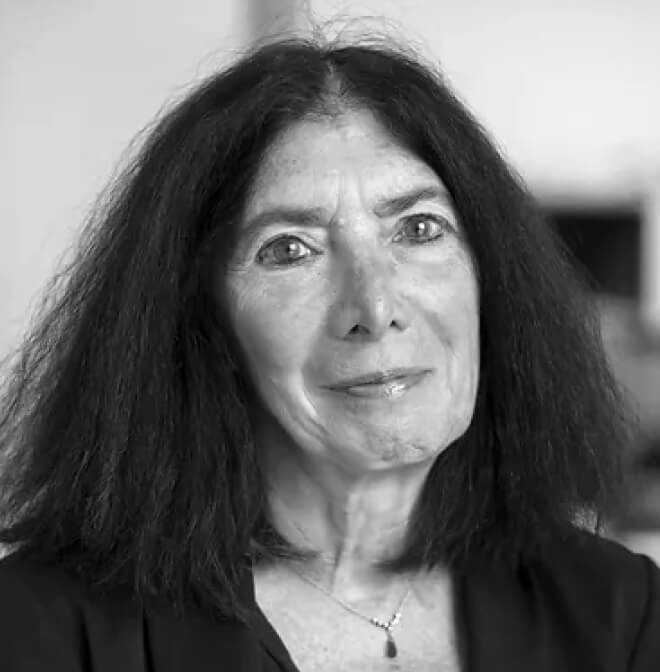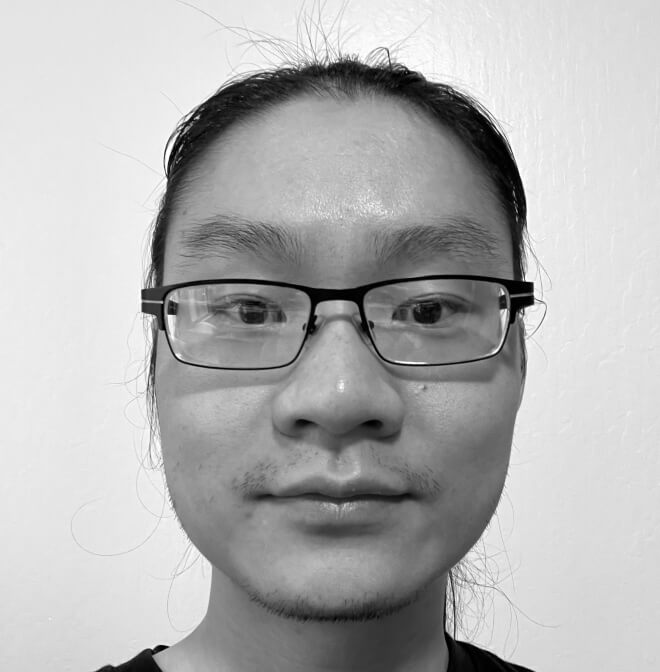

.jpg)

Danger biology comprises the mission-critical cellular systems evolved to detect and activate immune responses against deadly threats like infection, injury, and cellular malfunction. Decades of strong human genetic and clinical evidence link this powerful, mission-critical biology to hundreds of immune-mediated diseases.
Building on both recent research breakthroughs and drug discovery advances, Danger Bio is developing a portfolio of first-in-class therapeutics for cancer immunotherapy, autoimmunity, and inflammatory diseases led by a luminary group of 15 scientific cofounders and 100 drug discovery, biology, and clinical specialists from around the world.
Unlocking Three Big Opportunities
Precisely targeting disease-driving imbalances in danger biology unlocks three transformative new therapeutic strategies for cancer immunotherapy, autoimmunity, and chronic inflammatory diseases, relevant to 60+ indications and 10+ million patients:
The Powerful Alarm System Inside of Every Cell
Mission-critical systems biology
Inside of every cell, a powerful alarm system continuously monitors for signs of dangerous threats like infections, injuries, and malfunctions. This powerful biology is: expressed in all cells; evolutionarily conserved; strongly linked to 100's of diseases; the initiating "root" of all innate immunity; able to activate 1,000s of different genes upon receipt of a danger signal, inducing sweeping changes in cell and tissue states.
Danger Detection
Alarm System
Cell Death Programs
Responses
Responses
Immunity
Immunity
A Carefully Balanced System
The 4 processes of danger biology
Four distinct danger biology processes carefully balance immune activation against threats, while continuously providing rigorous protections against autoimmunity. 100s of individual targets orchestrate intricate local, paracrine, and systemic responses, each customized (through millions of years of evolution) to the specific type of danger detected.





Imbalances Potently Drive Immune-Mediated Diseases
Three key types of imbalances
Orchestrating effective immune responses against a diverse array of cellular threats while also ensuring that the immune system never accidentally attacks “self” requires complex systems-level coordination which can become imbalanced. For example, if danger is sensed when it isn’t really there (“false alarms”) or if the response to danger is too strong, autoimmune and inflammatory diseases can result. Conversely, if the system fails to detect danger or if the immune response is too weak, infections, cancers, or other cellular dangers can spread and threaten the host. Or, if the immune system is unable to come back to rest following activation, unresolved immune states can contribute to chronic inflammation and immune dysfunction. Strong human evidence links these danger biology imbalances to 100's of different diseases.

- 1Too much immune activation leads to autoimmune diseases
- 2Not enough immune activation leads to immunodeficiency, infections, and cancers
- 3Unresolved immunity leads to chronic inflammation, immunosuppression, and immune exhaustion
15 First-in-Class Programs
with 4 Lead Franchises
About the multi-modality portfolio
The active Danger Bio portfolio is comprised of 15 preclinical programs, each initially prioritized out of millions of possible drug discovery opportunities via the Related Sciences Facets machine learning platform with deep diligence by top researchers. Valid chemical matter has been discovered for 8 programs, and 4 initial lead franchise programs have been prioritized for their distinguished mix of strong validating human evidence and transformative disease treatment potential.
The portfolio is "modality agnostic" in that optimal therapeutic modalities are chosen based on each program's unique biological and clinical requirements. Current programs include small molecules, mRNA, RNAi, ASOs, mAbs, and targeted protein degraders, and employ a wide range of cutting edge drug discovery approaches in parallel including covalent libraries, DNA-encoded libraries, and insilico screens, in addition to traditional lead-like libraries, to maximize the chances of discovering exceptional chemical matter for challenging targets.


Powerful Biology, Broad Opportunity
Treating 60+ Unmet Need Diseases
Danger Bio's drug portfolio is designed to precisely modulate danger biology imbalances where there is strong evidence it plays a causal role in the disease or problem state's etiology. Danger Bio's clinical strategy team has identified ~30 initial high-priority indications out of more than 60 addressable diseases, collectively impacting tens of millions of US patients each year.
“Rebooting” the Tumor Microenvironment (TME)
Chronic low-level danger signaling plus lack of acute danger signals contribute to cold, suppressive, and exhausted TME states that undermine IO's odds of success


Precision modulation of danger biology signals re-polarize tumor microenvironments back to immunotherapy-responsive states, priming them for greater efficacy
Therapeutic Mechanisms Targeted
Extinguishing the Danger "Pilot Light"
Overactive or unresolved danger signals drive bad autoimmune and inflammatory cycles


The root danger signal and/or responses are blocked, allowing auto-inflammatory cycles to end
Therapeutic Mechanisms Targeted
Clearing Out the "Source of Self"
Insufficient clearance of apoptotic cells and nucleic acids exposes self-antigen to loss of immune tolerance


Increased clearance of endogenous nucleic acids and immune complexes remove the "sources of self" the autoimmunity is targeting
Therapeutic Mechanisms Targeted
World-Class R&D Led by Over 100 Specialists
20+ Leads with 15 Luminary Scientific Co-Founders
Danger Bio uses a unique decentralized team science model which brings together field-leading experts from both academia and industry together on specialized R&D teams tailored to the unique needs of each drug program. In contrast to a traditional biotech's "Scientific Advisory Board", Danger Bio's Biology, Clinical, and Informatics "Leads" play a more active, significant, and continuous role in shaping the company's R&D strategies. Each lead acts like a "fractional CSO" or "fractional CMO" to one or more drug programs of high relevance to their primary academic expertise, empowering Danger Bio with an extraordinary scientific depth and breadth that is only possible with "specialist-only science", all while reducing geographic barriers, interdisciplinary blindspots, and staff expense.


Kevin Bi is a computational biologist specializing in single cell profiling and immuno-informatics. He is a staff scientist in the Department of Medical Oncology at the Dana-Farber Cancer Institute, where his work focuses on identifying immune evasion mechanisms in the microenvironment of renal cell carcinoma. He has also worked in preclinical models to characterize subsets of exhausted T cells mediating the response to checkpoint blockade immunotherapy. Kevin graduated from Columbia University with a Bachelor of the Arts in Biochemistry.



Clare Bryan is Professor of Innate Immunity at the University of Cambridge in the UK. Clare uses multi-disciplinary approaches to study how Pattern Recognition Receptors signal in response to infectious and non-infectious stimuli. She is internationally recognized for her cutting-edge research to understand the mechanisms of formation, and the composition of, the large signaling complexes triggered by Pattern Recognition Receptor activation. This research focusses on understanding the fundamental mechanisms by which Toll-like receptors and inflammasomes signal to integrate inflammatory processes with a view to developing new treatments for infectious and inflammatory diseases. She has published extensively, is a highly cited scientist, has served on editorial boards (including the Journal of Immunology, The Journal of Biological Chemistry and EMBO) and is a Fellow of the British Pharmacology Society. She has broad interactions with industry including spending time on sabbatical at Genentech and GSK, serving on Biotech scientific advisory boards, consultancy work with pharma and translating her own research in a drug discovery project with Apollo Therapeutics.



Dr. Jill Buyon is the Sir Deryck and Lady Va Maughan Professor of Rheumatology, Director of the Division of Rheumatology at New York University Grossman School of Medicine, and Director of the NYU Lupus Center. She is a researcher and clinician specializing in the treatment of systemic lupus erythematosus, neonatal lupus, and rheumatic diseases in pregnancy. Dr. Buyon has received the Distinguished Clinical Investigator Award as well as Master distinction from the American College of Rheumatology, the Evelyn V Hess Lifetime Achievement Award for Research in Lupus from the Lupus Foundation of America, and the Halsted R. Holman Award for Excellence in Clinical Research. She is an active member of the Association of American Physicians. She has had continuous NIH funding for over two decades.
Dr. Buyon led the first multicenter study in SLE which resulted in a paradigm change with regard to the safety of exogenous estrogens in women of reproductive age and those postmenopausal. The SLE activity index SELENA-SLEDAI and the flare index were both generated as part of this study and are instruments widely used in current FDA registrational trials. She led the “Preventive Approach to Congenital Heart Block with Hydroxychloroquine (PATCH)” trial and held a MERIT grant on the pathogenesis of anti-Ro associated congenital heart block. She has initiated an NIH-funded study, “Surveillance and Treatment to Prevent Fetal Atrioventricular Block Likely to Occur Quickly (STOP BLOQ),” which is a multi-site clinical trial evaluating the efficacy of home fetal heart rate and rhythm monitoring. She continues to operate the national Research Registry for Neonatal Lupus, which she founded in 1994 and which has generated the bulk of evidence-based information on this disease. She was an mPI for a grant through the Accelerating Medicines Partnership (AMP) titled “Multi-Ethnic Translational Research Optimization (METRO) Lupus Consortium,” and now serves as the lead of the Lupus disease team in program’s second iteration, AMP AIM (AMP Autoimmune and Immune Mediated Diseases) on a grant titled “Lupus Omics Cutaneous Kidney Investigative Team (LOCKIT).” She directs the COMPEL (“Translational Center of Molecular Profiling in Preclinical and Established Lupus”) P50.



Yanick Crow is a clinician-scientist and Fellow of the Academy of Medical Sciences. He is a practicing Clinical Geneticist, and has developed a research interest in monogenic disorders associated with an up-regulation of type I interferons - a set of inborn errors of immunity resulting from abnormal sensing, inappropriate stimulation, or defective negative regulation of the type I interferon system. Understanding of these so-called type I interferonopathies has the potential to provide insights into immunological homeostasis, mechanisms of self / non-self discrimination and viral immunity. Importantly, this work is also leading to novel therapeutic strategies aimed at treating this devastating group of diseases.



Peter Du is a computational biologist working on uncovering mechanisms of cancer immune escape using statistical and machine learning methods. Previously, he worked at the Broad Institute to discover immune resistance mechanisms using high throughput functional genomics. Peter received his undergraduate degree from Princeton University in Molecular Biology with a certificate in Neuroscience and is currently a graduate student at Stanford University.



Dr. Fitzgerald is Professor of Medicine, Director of the Program in Innate Immunity, and the Worcester Foundation in Biomedical Sciences Chair at the University of Massachusetts Chan Medical School. Her work is focused on the innate immune system aimed at understanding the molecular basis of the inflammatory response in both normal responses (eg. Infection) and disease. The long-term goal of her work is to determine how innate immune sensing and signaling contribute to infectious, inflammatory, and autoimmune diseases in humans.
Dr. Fitzgerald completed all of her education in Ireland. She received her B.Sc. in Biochemistry in 1995 from University College Cork, Ireland and her PhD in Biochemistry in 1999 from Trinity College Dublin, Ireland. After pursing a post-doctoral fellowship at Trinity College Dublin, she joined UMass Chan as Instructor and is currently a tenured Professor.
Dr. Fitzgerald is an elected fellow of the American Society of Microbiology and was recently elected to the Royal Irish Academy, the National Academy of Sciences and the National Academy of Medicine. She has also received several awards including the Thermo-Fischer Meritorious Career Award (from the American Association of Immunology), the Saint Patrick’s Day Medal (from the Irish Government and Science Foundation Ireland), the Milstein Award for Excellence in Interferon and Cytokine research (from the International Cytokine and Interferon Society), amongst others.
She has extensive service both locally at UMass Chan and nationally including service on local and national advisory boards (e.g., Massachusetts Center For Pathogen Readiness, NIAID Board of Scientific Councillors, Burroughs Wellcome Fund Pathogenesis of Infectious Diseases and the Cancer Research Institute). She was also the recent past President of the International Cytokine and Interferon Society.



Dr. Nir Hacohen is the Director of the Center for Cancer Immunology at Massachusetts General Hospital, and the David P. Ryan Professor of Medicine at Harvard Medical School. He is the Director of the Center for Cell Circuits at the Broad Institute of MIT and Harvard. Dr. Hacohen is a recipient of the NIH Director’s Innovator award, the MGH Scholars Award and the Martin Prize. He completed his Ph.D. at the Stanford Biochemistry Department, and was a fellow at the Whitehead Institute at MIT. Dr. Hacohen developed an international workshop for advancing the careers of young cancer immunologists. He also founded Neon Therapeutics, which is now part of BioNTech.
Dr. Hacohen has pioneered systems biology tools that generate comprehensive cellular and molecular models of immunological processes and enable personalized immunotherapies. In the area of cell-level systems biology, he carried out genome-wide genetic screens in primary immune cells and identified genetic variants, transcription factors, chromatin regulators, signaling proteins, RNA and protein synthesis-degradation mechanisms and splicing factors driving the sensing of pathogens by myeloid cells. In the area of cell type discovery, he contributed to the human cell atlas by discovering new immune cell types, including human dendritic cell subsets and their progenitors as well as T cells and their differentiation states. He also identified cell states associated with disease in bacterial/viral sepsis, lupus nephritis and cancer immunity, and discovered spatially-organized immune cell structures in tumors. In the area of cancer vaccines, he created machine-learning based methods to predict cancer antigens, and developed the first personalized approach to immunotherapy using vaccines that target patient-specific tumor neoantigens. This led to clinical trials in melanoma and glioblastoma multiforme, demonstrating induction of tumor-specific T cells that kill malignant cells and that are durable for many years. His lab is currently working on using systems-level technologies to understand mechanisms of human immune diseases and model them in mice, with the goal of catalyzing new therapeutic strategies.



Dr. Ishizuka is Assistant Professor of Medicine, Immunobiology and Pathology at Yale School of Medicine. He is the principal investigator of a basic and translational immuno-oncology laboratory and a practicing medical oncologist at Yale Cancer Center. He completed his D.Phil. in Immunology at Oxford University and the National Institutes of Health on a Rhodes Scholarship. He subsequently pursued his medical doctorate at Harvard Medical School and the Massachusetts Institute of Technology, internal medicine residency at Brigham and Women’s Hospital and a fellowship in medical oncology at the Dana-Farber Cancer Institute. His laboratory focuses on defining and targeting mechanisms of tumor inflammation to improve immunotherapy with a particular focus on triggering dsRNA sensing pathways, the use of functional genomics to identify novel therapeutic targets and the development of new human translational approaches. He has helped to initiate and develop or served as scientific advisor to several oncology and immuno-oncology companies including Jounce Therapeutics, Kronos Bio and Tango Therapeutics.



Jonathan Kay, MD, is Professor of Medicine and Population and Quantitative Health Sciences and holds the Timothy S. and Elaine L. Peterson Chair in Rheumatology at the UMass Chan Medical School in Worcester, where he directs Clinical Research in the Division of Rheumatology and is Associate Director of the Medical Scientist Training Program (MSTP)-funded MD/PhD Program. His clinical appointment is as a Physician at UMass Memorial Medical Center, also in Worcester. He received his medical degree from the University of California School of Medicine in San Francisco, California. He then completed an internship and residency at the Hospital of the University of Pennsylvania in Philadelphia and fellowships in rheumatology and immunology at the Brigham and Women’s Hospital and Harvard Medical School in Boston, Massachusetts.
Dr. Kay is a Fellow of the American College of Rheumatology and of the American College of Physicians. In 2018, he received the Distinguished Service Award from the American College of Rheumatology and he was awarded honorary membership in EULAR. He is an ad hoc reviewer for many journals and a member of the editorial board of RMD Open.
Dr. Kay’s clinical interests span the spectrum of rheumatic diseases, with special interest in rheumatoid arthritis, spondyloarthropathies, and other forms of inflammatory arthritis. He was a member of the group that developed the 2010 ACR/EULAR Diagnostic and Classification Criteria for Rheumatoid Arthritis. He chaired the Rheumatology Working Group and was a member of the Internal Medicine and Musculoskeletal Topic Advisory Groups for the World Health Organization in its Revision of the International Classification of Diseases (ICD)-11.
Over the past three decades, his clinical research has focused on nephrogenic systemic fibrosis (formerly known as nephrogenic fibrosing dermopathy), β2-microglobulin amyloidosis, and other rheumatologic problems of patients with chronic kidney disease. He has been a principal investigator on over 60 clinical trials of novel therapies for rheumatoid arthritis, axial spondyloarthritis, systemic lupus erythematosus, gout, and osteoarthritis. Over the past decade, he has been involved in the development of biosimilars to treat rheumatic diseases. Dr. Kay lectures internationally and is the author of more than 260 publications and book chapters.



Dr. Andy Minn is a Professor in the Department of Radiation Oncology and an Investigator in the Abramson Family Cancer Research Institute at the University of Pennsylvania. He is also Director of the Mark Foundation Center for Immunotherapy, Immune Signaling, and Radiation, and a project member in the Parker Institute for Cancer Immunotherapy. He received his MD and PhD from the University of Chicago and finished his residency in radiation oncology along with his post-doctoral training at Memorial Sloan-Kettering Cancer Center. His research seeks to understand key mechanisms of cancer immunotherapy resistance. Specifically, his work focuses on the role of pattern recognition receptors and interferon signaling pathways, which are pathways that are typically activated when normal cells become infected with a virus. Surprisingly, cancers and many cancer therapies also can activate these pathways, prompting an interest in understanding how this happens, the impact on anti-tumor immunity, and its clinical significance. An overarching goal is to translate this understanding to better inform the design of clinical trials. Dr. Minn’s work has been published in prestigious scientific journals such as Cell, Immunity, and Nature. He is also a member of the American Society for Clinical Investigators (ASCI).



Yorgo Modis is Professor of Virology and Immunology at the University of Cambridge in the UK.
Yorgo’s research focuses on understanding the fundamental mechanisms of enveloped RNA virus assembly, cell entry, and innate immune recognition. By integrating macromolecular structure determination with multiscale imaging and functional assays, his work has uncovered the molecular mechanisms underlying key steps of infection and antiviral immune responses.
Yorgo’s early work established how class II envelope glycoproteins, found in many virus families including important human pathogens, drive fusion of the viral and cellular membranes, a crucial cell-entry step. His widely cited studies on flavivirus membrane attachment and fusion (PNAS:2003; Nature:2004a; J.Virol:2005, J.Virol:2006) have become textbook knowledge (Fields Virology) and sparked much new research. He also contributed to the first structure determination of a protein translocation channel (Nature:2004b).
More recently, Yorgo discovered how RNA delivered into cells by enveloped RNA viruses including SARS-CoV-2 is recognized and distinguished from cellular RNAs with the necessary sensitivity and specificity by a molecular proofreading mechanism by the innate immune sensor MDA5 (Mol.Cell:2018; EMBO J.:2012; PNAS:2012). He showed how genetic variants can cause MDA5 to misrecognize endogenous RNA as viral RNA to cause autoinflammatory disease (Nat.Commun.:2021).
In parallel, Yorgo has shown how structural and chromatin-modifying properties of the transcriptional repressor complexes HUSH and KAP1 provide a newly recognized type of innate immune response by epigenetically regulating the expression of viral genes and endogenized sequences in human chromatin (Nucleic Acids Research:2020; Nat.Commun.:2020; PNAS:2019; Nat.Commun.:2018; Nat.Genet.:2017).



John Monroe, phd is an Emeritus Professor at the Perelman School of Medicine at the University of Pennsylvania. Most recently he led Genentech’s Immunology Discovery Department, and was responsible for new target discovery and pre-clinical validation. He also headed the Genentech Immunology Precision Medicine Department and determined precision medicine strategies and early clinical validation of biomarkers for patient selection. He was a tenured Professor at the University of Pennsylvania School of Medicine where for over 20 years he oversaw a research lab and published seminal papers in the field of B lymphocyte biology and immune cell tolerance.
Dr. Monroe received his Ph.D. In Immunology from Duke University studying immune cell receptor signaling and did a post-doctoral fellowship at Harvard Medical School studying T cell modulation of immune responses. He is a former Vice Chair for Research in the Department of Pathology at UPENN and directed their Cancer Immunology Program. He has served on many review committees and editorial boards including as Deputy Editor for Immunological Reviews.



Arpit Panda is a systems immunologist, data scientist and a physician-scientist in-training. In a previous life, Arpit developed a range of software development skills while working as a full-stack engineer and serving on the founding team at a Southern California amateur sports streaming startup. After becoming excited by the crucial and complex problems that remain unsolved in health and medicine, he switched fields and began studying the mechanisms of response and resistance to immunotherapy in Nick Haining's lab at Harvard. He was involved in validating Adar1 as a potential immunotherapy target and continues studying the role of RNA modifiers in tumor immunology. Before Related Sciences, Arpit helped establish the bioinformatics team and led early preclinical bioinformatic drug discovery efforts for neuromuscular diseases at 4:49 NewCo, a 5 AM Ventures company. Arpit obtained his B.S. from the California Institute of Technology, and his Masters in Immunology from Harvard . He's currently an MD PhD candidate at the University of Chicago.



Boris Reizis is Professor of Pathology and Samuel A. Brown Professor of Medicine, Director of the Translational Immunology Center and Interim Director of the Colton Center for Autoimmunity at NYU Grossman School of Medicine. His lab is credited for studies of dendritic cell development and function, as well as on the pathogenesis of systemic autoimmunity in humans and animal models. His work has been recognized with the Dr. William E. Paul Distinguished Innovator Award from the Lupus Research Alliance and Fredrick W. Alt Award for New Discoveries in Immunology from the Cancer Research Institute.



Dr. Spranger pursued her scientific training at Ludwig-Maximillians-Universität (LMU) in Munich, Germany, first as an undergraduate in biology and then completing a Ph.D. in immunology. She then joined the University of Chicago as a postdoctoral fellow, supported by the German Research Foundation as well as the Cancer Research Institute, later moving to her current position as assistant professor at the Koch Institute for Integrative Cancer Research at the Massachusetts Institute of Technology. She has been awarded the Howard S. and Linda B. Stern Career Development Professorship and is a Pew-Stewart Scholar. Her work seeks to elucidate the mechanisms and pathways underlying the interaction between the immune system and cancer using mouse models that recapitulate the co-evolution of tumor progression and the anti-tumor immune response. One major emphasis of her work is on dendritic cell and T cell interactions both during T cell activation in the lymph node but also in the tumor microenvironment.



Eugene William (Bill) St. Clair is the W. Lester Brooks, Jr. Distinguished Professor of Medicine, Chief of the Division of Rheumatology and Immunology, and Professor in Immunology at the Duke University School of Medicine. Dr. St. Clair's research focus is on the pathogenesis and treatment of rheumatoid arthritis (RA).



Dr. Stetson is a Professor of Immunology at the University of Washington. Dr. Stetson’s work has been recognized with a Rita Allen Scholar Award, a Burroughs Wellcome Investigator Award, a Howard Hughes Medical Institute Faculty Scholar Award, and a NIH Directors Award for Transformative Research. Dan studies intracellular nucleic acid detection and antiviral responses. His lab has identified pathways, sensors, and key regulators of the antiviral response. In particular, his work has demonstrated that specific human immune diseases are caused by excessive activation of the same antiviral responses that protect us from infection.



Paul Thompson is the Director of Program in Chemical Biology at the University of Massachusetts Medical School. He is also a Professor in the Department of Biochemistry and Molecular Biotechnology. His research focuses on the development of novel therapeutics for a range of diseases including cancer, rheumatoid arthritis, inflammatory bowel disease, and lupus. In particular, he is a world leader in the biology and biochemistry of the Protein Arginine Deiminases. Based on his research in this area, Paul founded Padlock Therapeutics which focused on identifying therapeutics for a range of inflammatory diseases. This company was acquired in 2016 for up to $600M.
Paul received his BSc and PhD degrees from McMaster University in Canada before moving to the United States to take a postdoctoral position with Dr. Philip Cole at the Johns Hopkins School of Medicine. Paul then moved to the University of South Carolina to begin his independent career before moving to the Department of Chemistry at The Scripps Research Institute, Scripps Florida, in May 2010. Paul subsequently moved to the University of Massachusetts Medical School in Aug 2014. Paul has published more than 180 articles in major scientific journals including Nature, Cell, Nature Structural and Molecular Biology, and the Journal of the American Chemical Society. Paul has also won a number of awards including a Canadian Institutes of Health Research Postdoctoral Fellowship and a Camille Dreyfus Teacher-Scholar Award. He is also a Fellow of the Royal Society of Chemistry.


Dmitriy Zamarin, MD PhD is an Associate Attending Physician and Translational Research Director in the Gynecologic Medical Oncology Service at the Memorial Sloan Kettering Cancer Center. Dr. Zamarin obtained his MD and PhD degrees from the Mount Sinai School of Medicine in New York, where he studied mechanisms of influenza virus pathogenesis. He completed residency in Internal Medicine at the Mount Sinai Hospital in New York and fellowship in Hematology/Oncology at the Memorial Sloan Kettering Cancer Center, studying the mechanisms of response and resistance to immunomodulatory antibody therapy and oncolytic virus-based therapeutics.
Dr. Zamarin is a principal investigator and a translational chair on several institutional and cooperative group clinical trials exploring novel immunotherapy combinations in gynecologic cancers and other solid tumors and serves as the translational research co-chair on the NRG Oncology Cervical Cancer committee. His clinical and laboratory research are focused on characterization of biomarkers in patients undergoing immunotherapy and on development of novel immunotherapeutic strategies using immunomodulatory antibodies and genetically-engineered oncolytic viruses. For his work, Dr. Zamarin has received multiple awards, including Damon Runyon Foundation Fellowship Award, Ovarian Cancer Research Fund Liz Tilberis Early Career Award, and the Ovarian Cancer Academy Grant from the Department of Defense.



Jimmie Ye is an Associate Professor of Medicine, at UCSF who specializes in human genomics, single-cell genomics, computational biology, and immunology. Jimmie has a track record of developing and applying innovative experimental and computational genomic approaches to study the molecular basis of immune-mediated disease and natural human immune variation. Jimmie serves as a biology lead for Related Sciences and ImmunoAI, consults for Maze Therapeutics, and is a founder of Survey Genomics.
As a postdoc, he led the ImmVar Consortium to map the genetic determinants of immune response in more than 500 healthy humans across three ethnicities, discovering that disease-associated variants often differentially modulated gene expression across cell types and stimuli, suggesting the importance of the interaction between genetics and cellular context in the development of disease. The Ye lab expands on the molecular profiling work of ImmVar to include bulk and single-cell transcriptomic, epigenomic, and proteomic sequencing to enable the mapping of variants associated with chromatin accessibility total transcript abundance and isoform structure. In 2018, the Ye Lab developed an algorithm that enables population scale single-cell sequencing by leveraging natural genetic variation encoded in single cell sequencing libraries and applied the approach to sequence > 10M immune cells from patients with autoimmunity, infectious disease including COVID19, cancer, and healthy controls, generating the largest reference of immune cell profiles in humans. Currently, the Ye Lab focuses on building new tools to encode spatial, temporal, and cellular activation information in single cell libraries and further scale single cell sequencing by 10-fold.



Dr. E. John Wherry is the Barbara and Richard Schiffrin President’s Distinguished Professor, Chair of the Department of Systems Pharmacology and Translational Therapeutics in the Perelman School of Medicine and Director of the UPenn Institute for Immunology. Dr. Wherry received his Ph.D. at Thomas Jefferson University in 2000 and performed postdoctoral research at Emory University from 2000-2004. Dr. Wherry has received numerous honors including the Distinguished Alumni award from the Thomas Jefferson University, the Cancer Research Institute’s Frederick W. Alt Award for New Discoveries in Immunology, the Stanley N. Cohen Biomedical Research Award from the University of Pennsylvania Perelman School of Medicine and was inducted as an AAAS Fellow in 2021. As of November 2021, Dr. Wherry has over 275 publications, an H-Index of 117, and his publications have been cited over 70,000 times.
Dr. Wherry helped pioneered the field of T cell exhaustion, the mechanisms by which T cell responses are attenuated during chronic infections and cancer. He helped identify the role of the “checkpoint” molecule PD-1 and others for reinvigoration of exhausted T cells in cancer. Dr. Wherry’s work has defined the underlying molecular and epigenetic mechanisms of exhausted T cells. His laboratory has also recently focused on applying systems immunology approaches to define Immune Health patients across a spectrum of diseases. In 2020-2021, Dr. Wherry’s laboratory focused considerable efforts on the immunology of COVID-19 and SARS-CoV-2 vaccination including establishing a new Immune Health Project to interrogate and use immune features to identify novel treatment opportunities.











